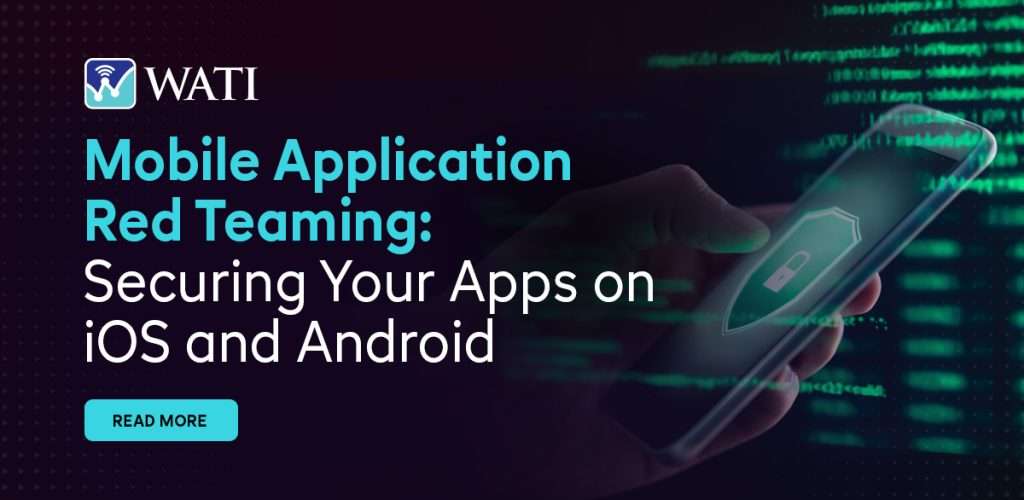Launching a mobile app is an exhilarating venture. You’ve poured your heart, soul, and countless hours into crafting a digital experience you believe will resonate with users. But before you hit that “publish” button on the app stores, there’s a critical step you absolutely cannot afford to skip: Vulnerability Assessment and Penetration Testing (VAPT).
Think of your mobile app as a newly built fortress. It might look impressive on the outside, but without rigorous security checks, hidden weaknesses could leave it vulnerable to attacks. In today’s hyper-connected world, where data breaches and cyber threats are rampant, launching an app without VAPT is akin to opening your fortress doors to potential intruders.
This isn’t just about avoiding technical glitches; it’s about safeguarding your users’ sensitive information, protecting your brand reputation, and ensuring the long-term success of your application. In this comprehensive guide, we’ll delve deep into why mobile app VAPT is not just a good idea, but a fundamental necessity before your app sees the light of day.
What Exactly is Mobile App VAPT?
Let’s break it down. Vulnerability Assessment is the process of identifying potential security weaknesses or vulnerabilities within your mobile application and its underlying infrastructure. This involves using automated tools and manual techniques to scan for known flaws.
Penetration Testing, on the other hand, takes things a step further. It’s a simulated cyberattack designed to exploit the identified vulnerabilities and assess the real-world impact they could have. Think of it as ethical hacking, where security experts try to break into your app to uncover hidden pathways and weaknesses that malicious actors could exploit.
Together, VAPT for mobile apps provides a comprehensive security posture assessment, giving you a clear picture of your app’s strengths and weaknesses before it reaches your users.
Why is Pre-Launch VAPT Absolutely Essential?
Skipping VAPT before launch can have severe consequences. Here are the key reasons why it’s a must-have:
Protecting Sensitive User Data: Mobile apps often handle a wealth of personal information, from login credentials and financial details to health records and location data. A security breach can expose this sensitive data, leading to devastating consequences for your users, including identity theft, financial loss, and privacy violations. Pre-launch VAPT helps identify and fix vulnerabilities that could be exploited to access this data, ensuring user trust and compliance with data protection regulations like GDPR, CCPA, and India’s own data protection laws.
Preventing Financial Losses: Security vulnerabilities can be exploited for financial gain. Attackers could gain unauthorized access to user accounts, perform fraudulent transactions, or even hold your app hostage through ransomware. Investing in VAPT services proactively can save you from potentially massive financial losses down the line, including recovery costs, legal fees, and regulatory fines.
Maintaining Brand Reputation and User Trust: In today’s digital age, a data breach can severely damage your brand reputation. News of a security incident spreads like wildfire, eroding user trust and potentially leading to a mass exodus. Pre-launch VAPT demonstrates your commitment to security and helps build a reputation for reliability and trustworthiness, which is crucial for long-term user adoption and retention.
Ensuring Business Continuity: A successful cyberattack can disrupt your app’s functionality, leading to downtime and impacting your business operations. By identifying and mitigating vulnerabilities before launch, you can ensure the stability and availability of your app, minimizing the risk of disruptions and ensuring business continuity.
Meeting Compliance Requirements: Many industries have specific security standards and compliance requirements that mobile apps must adhere to. For example, apps handling financial data need to comply with PCI DSS standards, while healthcare apps must comply with HIPAA. VAPT helps you identify and address security gaps to meet these regulatory requirements and avoid potential penalties.
Identifying Logic Flaws and Design Weaknesses: VAPT isn’t just about finding technical vulnerabilities. It also helps uncover logic flaws in your app’s design and functionality that could be exploited. For instance, a flaw in the password reset process or an insecure API integration could be a gateway for attackers. Addressing these weaknesses early in the development cycle is far more cost-effective than fixing them after launch.
Reducing Development Costs in the Long Run: While VAPT involves an upfront investment, it can significantly reduce development costs in the long run. Identifying and fixing vulnerabilities early on is much cheaper and less time-consuming than addressing them after the app has been launched and potentially exploited. Post-launch security incidents can lead to costly emergency patches, reputational damage control, and potential legal battles.
Enhancing User Experience: Users are increasingly concerned about the security of their data. An app that has undergone rigorous security testing and demonstrates a commitment to protecting user information is more likely to be trusted and adopted. This can lead to better user engagement, higher retention rates, and positive reviews, ultimately enhancing the overall user experience.
The VAPT Process: What to Expect
A comprehensive mobile app VAPT process typically involves the following stages:
- Planning and Scoping: Defining the scope of the testing, including the specific features and functionalities to be assessed.
- Information Gathering: Collecting information about the application’s architecture, technologies used, and potential attack vectors.
- Vulnerability Scanning: Using automated tools to identify known vulnerabilities.
- Penetration Testing: Simulating real-world attacks to exploit identified vulnerabilities and uncover hidden weaknesses. This often involves various techniques like:
- Static Analysis: Analyzing the application’s code without executing it to identify potential flaws.
- Dynamic Analysis: Analyzing the application while it’s running to observe its behavior and identify vulnerabilities.
- API Testing: Assessing the security of the application’s APIs, which are crucial for data exchange.
- Client-Side Testing: Examining the security of the app’s front-end components and how it handles user input.
- Server-Side Testing: Evaluating the security of the app’s backend infrastructure and server-side logic.
- Reporting and Analysis: Documenting the identified vulnerabilities, their severity levels, and providing detailed remediation recommendations.
- Remediation and Retesting: Addressing the identified vulnerabilities and conducting follow-up testing to ensure they have been effectively resolved.
Who Needs VAPT for Mobile Apps?
If you’re launching any of the following types of mobile applications, VAPT is crucial:
- Fintech apps handling financial data and transactions
- Healthcare apps that store or transmit medical records
- E-commerce apps managing customer data and payments
- Social networking platforms with communication and media sharing features
- Enterprise apps with integrations to business tools and CRMs
No matter the domain, if your app interacts with user data, payments, or cloud infrastructure, it needs to be tested.
Choosing the Right VAPT Partner
Selecting a reputable and experienced VAPT provider is crucial for obtaining accurate and actionable results. Look for a partner that:
- Has a strong track record in mobile app security testing.
- Employs certified security professionals with expertise in mobile platforms (iOS and Android).
- Uses industry-standard methodologies and tools.
- Provides clear and comprehensive reports with actionable remediation advice.
- Understands your specific industry and compliance requirements.
Conclusion
Launching a mobile app without thorough security testing is a gamble you simply can’t afford to take. The potential consequences – data breaches, financial losses, reputational damage, and legal liabilities – far outweigh the investment in pre-launch VAPT.
By making VAPT an integral part of your mobile app development lifecycle, you’re not just securing your application; you’re building trust with your users, protecting your brand, and laying the foundation for long-term success.
Ready to ensure your mobile app is secure before it hits the market? Contact us today for a comprehensive VAPT consultation and let our expert team help you launch with confidence.



